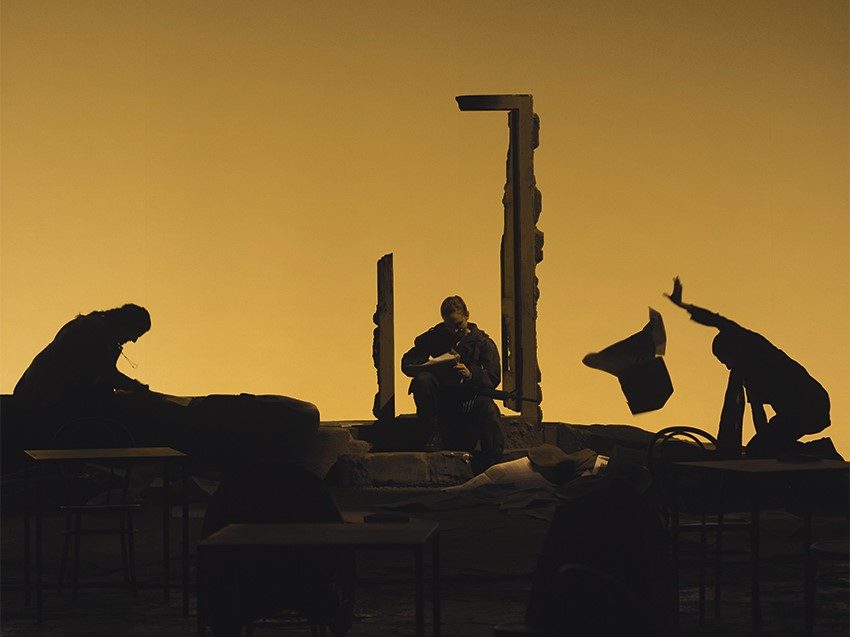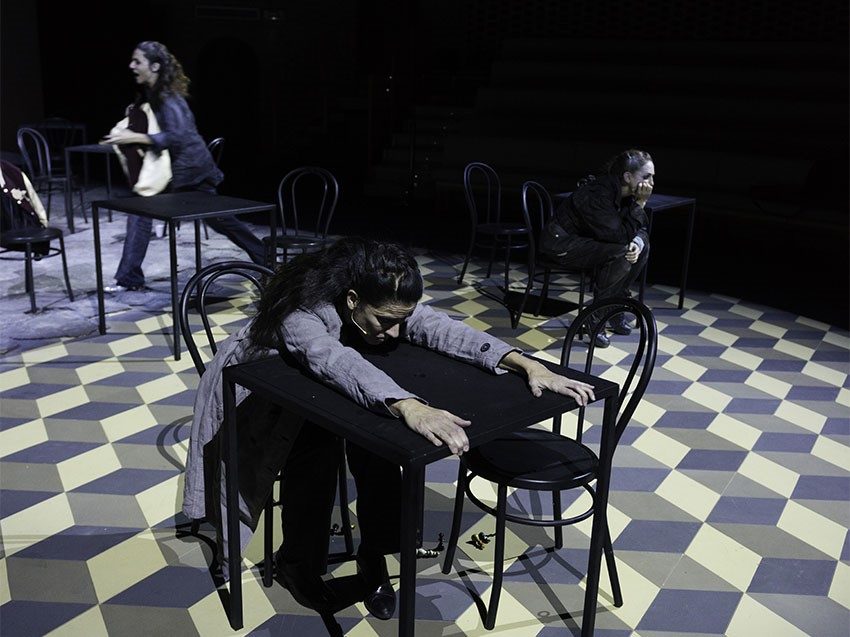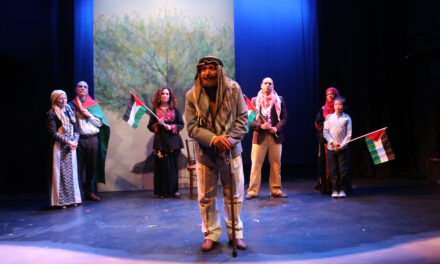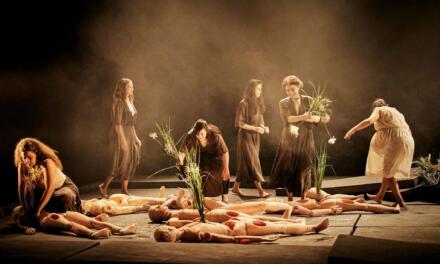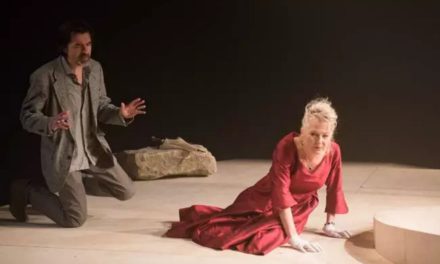Credoinunsolodio is a play by Stefano Massini, the Italian playwright and director and winner of many prizes in the field of original dramaturgy and contemporary direction. Massini is currently the Artistic Director at the Piccolo Teatro of Milan, which has promoted and produced the play.
Credoinunsolodio is directed and interpreted by Manuela Mandracchia, Sandra Toffolatti and Mariangeles Torres. The play debuted at the Piccolo Teatro (Studio Melato) during the 2015–2016 season and was part of the bill for the 2016–2017 season.
Talking about the Middle East problem without lapsing into rhetoric is not simple: it provokes the rising of unconscious repressions, and the defence of one’s actions and of the conduct kept by one’s nation, culture or religion; therefore, there is a great possibility of falling into banality or into a tearful or presumptuous rhetoric. On the other hand, without renouncing a strong emotional involvement of the audience or a deep ethical reflection, this play by Stefano Massini, staged in Milan, faces the Middle East situation with complexity – without looking for predictable emotional reactions or hypocritical or idealistic solutions.
The narrative technique appears peculiar and of great interest. The three actresses narrate the events in which the characters are involved but simultaneously perform them: each actress interprets a woman who relives her experience in front of the audience while narrating in the present tense her interiority, her thoughts and emotions, and describing the world which surrounds her. This generates the simultaneous presence of perceptive, narrative and emotional levels which involve the audience both emotionally and rationally.
This narration of interiority, moreover, is obviously not objective but reveals all the mechanisms of self-construction enacted by the characters relating to their memory, and to their means of self-defense and self-criticism. Therefore, it allows the audience to observe the actions, the emotions and the reflections of the three women as well as the successive re-elaborated versions of their experiences. Consequently, the judgement of a character which is explored so deeply and on so many levels cannot be but complex, hard and anguishing: in this way, the play disrupts the audience’s initial prejudice toward and judgement of these characters.
The narration of the three women, moreover, provides the audience with a description of the events, the settings and the related perceptions, which masterfully unifies the concrete level and the poetic and dreamlike intensity of imagination. The three actresses push the audience to create the setting with its fantasy and, under the guidance of their words, to materialize it in all of its concrete details. Their narrative is accompanied by an essential scenic design, made of single common objects, provided with great symbolic value, put into a general context which appears vague and indefinite, and which only acquires sense through the characters’ narration.
In this setting we see three characters with a complex and evolving psychology, hard to judge and to put into a precise category, of which we observe the intimate tragedy. Eden (the actress Mariangeles Torres) is a cultured and tolerant teacher, who criticizes the obsession with security and the mutual suspicion between Israelis and Palestinians. Her involvement in a kamikaze attack, which she survives because of good luck, brings her to the birth of fear, insecurity and paranoia, and in the end of hatred. The audience observes her evolution and her tormented and self-opposed repudiation of her certainties, until the point of not having the strength to disagree with the barbaric and intolerant assertions pronounced by a colleague. Shirin (the actress Sandra Toffolatti) is a Palestinian girl, obliged to live among the intolerant Israelis’ abuses, among destroyed houses during specious searches, beatings hidden by the police, and flares which kill civilians. These sentiments push her to approach a group of terrorists and desire martyrdom as a revenge for herself but also for her people. Mina (the actress Manuela Mandracchia) is an American soldier, made cynical by the war: she is so accustomed to the conflict that she does not even appear shaken by massacres. Having arrived to serve as a mediator, she is obliged to violate human rights by stopping and searching ambulances carrying seriously injured victims or judging others on matters of life and death. The official reason for her action is to guarantee legality and security, but she knows she is actually there to serve the purely economic and political interests of the Western countries.
At the end what appears dominant is the hatred, the real drive and cause of the suffering which associates the three women, together with the silence of a God in whose name this sentiment is justified. This connection is underlined by the title of the play, which contains a wordplay: in Italian, “credoinunsolodio” can be divided and interpreted both as “credo-in-un-solo-dio” (“I believe in one god”) and as “credo-in-un-sol-odio” (“I believe in one hatred”).
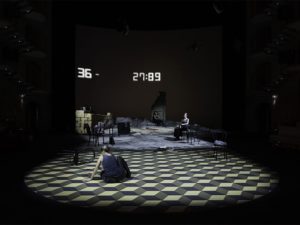
Credoinunsolodio. Photo: Attilio Marasco
This post was written by the author in their personal capacity.The opinions expressed in this article are the author’s own and do not reflect the view of The Theatre Times, their staff or collaborators.
This post was written by Matteo Quinto.
The views expressed here belong to the author and do not necessarily reflect our views and opinions.

